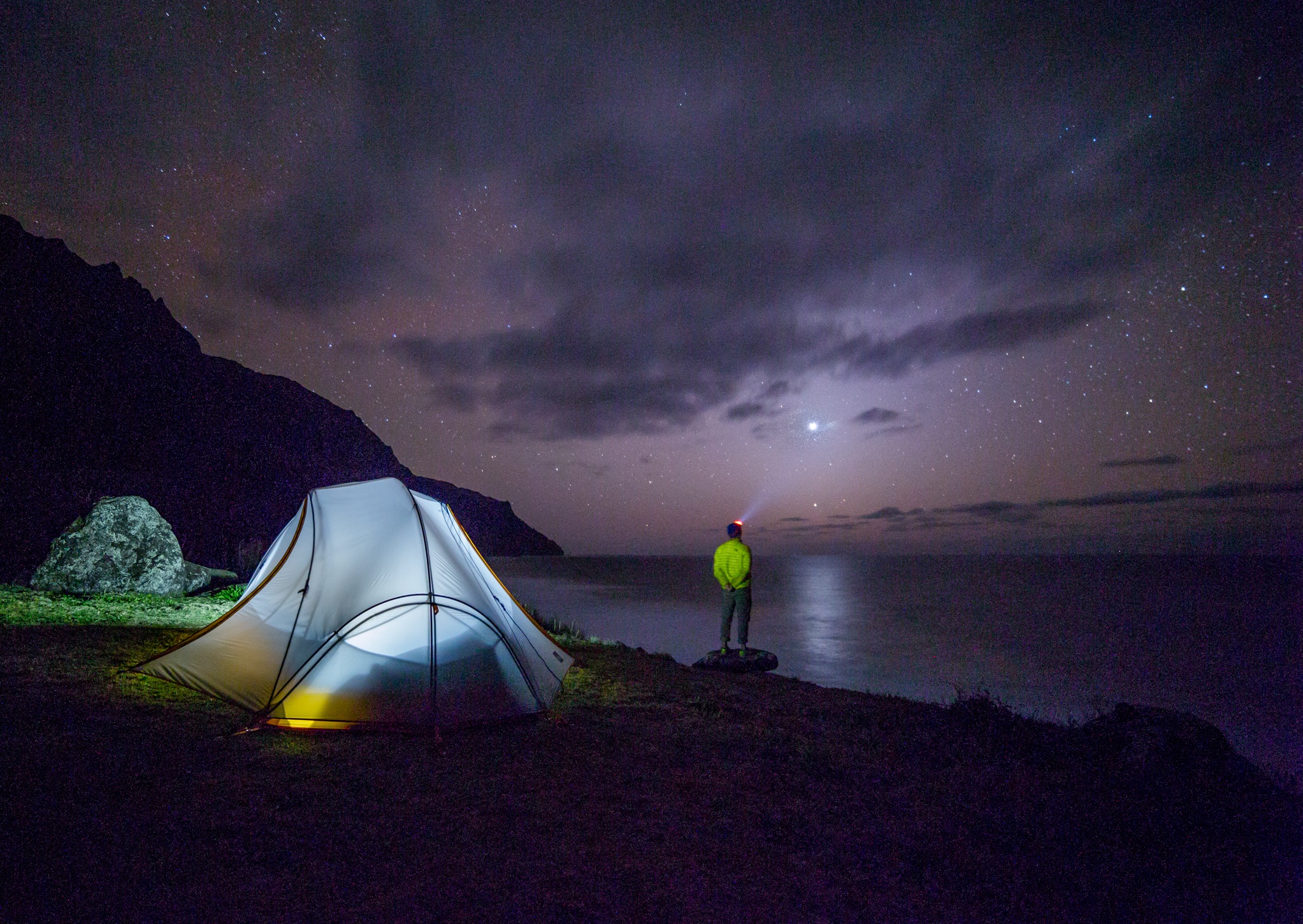Outdoor Safety-Camping And Trail Tips
For Release
May 31, 2019
As warmer weather arrives people are enjoying the outdoors and all it has to offer. Some hit the trails for daily walks and others make plans for extended camping trips. Whatever piques your adventurous soul, take the necessary precautions to prevent mishaps when exploring the great outdoors.
Camping Tips
- Pack a first aid kit. Your kit can prove invaluable if you or a member of your group suffers a cut, bee sting or allergic reaction.
- Bring emergency supplies. A map, compass, flashlight, knife, waterproof fire starter, personal shelter, whistle, warm clothing, high energy food, water, and insect protection.
- Learn the ABC's of treating emergencies. Recognizing serious injuries will enable you to attend to a victim until medical help arrives.
- Before you leave, find out the weather report. Carry a compact weather radio; in inclement weather, find shelter until the worse passes.
- Avoid areas of natural hazards. Check the contour of the land and look for potential trouble due to rain. Areas that could flood or become extremely muddy can pose a problem.
- Inspect the site. Look for a level site with enough room to spread out all your gear. To include a site that has trees or shrubs on the side of prevailing winds will help block strong, unexpected gusts.
- Build fires in a safe area. Your open fires and fuel-burning appliances must be far enough away from the tent to prevent ignition from sparks, flames, and heat. NEVER use a flame or any other heating device inside a tent. Use a flashlight or battery-powered light instead.
- Make sure your fires are always attended. Be sure you have an area for a fire that cannot spread laterally or vertically. When putting the fire out, drown it with water, making sure all embers, coals and sticks are wet. Embers buried deep within the pile have a tendency to reignite later.
- Pitch your tent in a safe spot. Make sure your tent is made of a flame-retardant fabric and set up far enough away from the campfire.
- Dispose of trash properly.
- Be cautious when using a propane stove. Read the manufacturer's instructions for the stove and propane. ONLY use the stove as a cooking appliance. NEVER leave it unattended while it's burning.
- Beware when encountering wildlife. To ward off bears, keep your campsite clean, and do not leave food, garbage, coolers, cooking equipment or utensils out in the open.
- Beware of poisonous plants. Familiarize yourself with any dangerous plants that are common to the area.
Trail Tips
- Before starting out, do warm-up exercises. Stretching gets the body going and increases your flexibility.
- Start out slowly, gradually increasing your pace and distance traveled.
- Let the slowest person set the pace and distance traveled, especially when traveling with children or older adults.
- Hike and bike only on marked trails in wilderness areas.
- Hike and travel in groups as much as possible, especially in hazardous terrain.
- Leave your itinerary with a friend or family member and check in with them upon your return.
- Learn basic repair skills for changing a bike tire or fixing a backpack; take repair kits on your trail.
- Dress in layers.
- Wear sunglasses and a hat or visor.
- Bring sunscreen no matter the season.
- Develop an emergency plan before you start your trip.
- Bring a customized first aid kit tailored to your outing.
- Take frequent rests or vary your pace to recover from strenuous activity spurts.
- Drink plenty of water and treat or filter all water.
- Pack carbohydrate-energy bars, granola, candy, or fruit.
- Give yourself two hour's daylight to set up camp.
- Keep pets on a leash.
Avoiding Ticks
- Wear long pants tucked into your socks to prevent ticks from climbing up your legs. (https://campingandcamping.com/how-to-avoid-tick-bites-hiking-camping/)
If You Get Lost
- Pay close attention to your surroundings and landmarks and relate this to your location on a map.
- Stay calm. Try to remember how you got to your present location.
- Stay put if it is nightfall, you are injured or near exhaustion.
- As a last resort, follow a drainage or stream downhill. This can often lead to a trail or road.
Acting System Chief Tim Keen, of the Prince William County Fire and Rescue System, states, "Prince William County has many National, State and Regional parks and forests in which one can hike, bike, paddle and camp. By heeding the safety tips, you'll have an enjoyable, safe and memorable outing experience."
For additional safety tips, visit U.S. Forest Service at https://www.fs.fed.us/recreation/safety/safety.shtml or Centers for Disease Control, Prevention at https://www.cdc.gov/family/camping/index.htm and the National Park Service at https://www.nps.gov/subjects/camping/staying-safe.htm.

